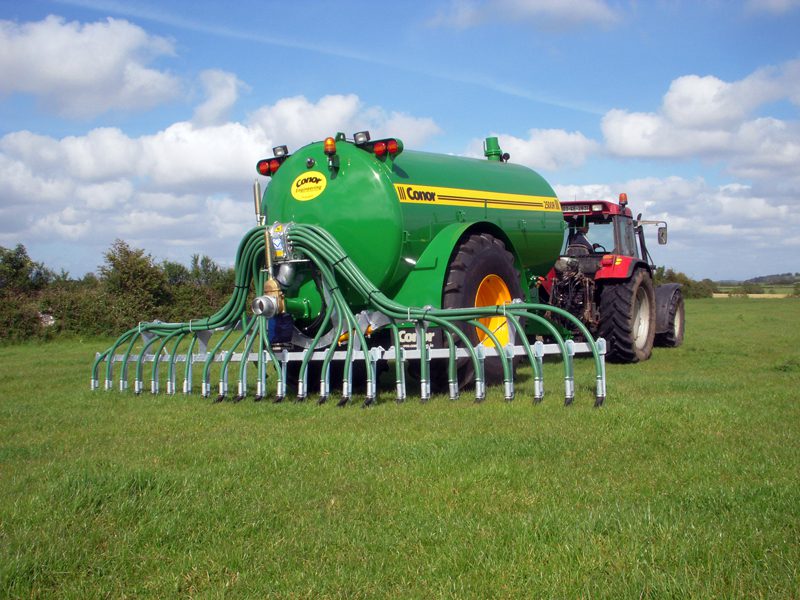Continuous declines in water quality and increases in greenhouse has (GHG) and ammonia emissions will make it more difficult to secure derogation in the future, according to Teagasc.
In 2020, just shy of 6,500 derogation applications were submitted and eight new changes have since come into effect so farmers must be conscious they are compliant heading into 2021.
Compulsory Liming Programme
From January 2020, farmers must have implemented a full-scale liming programme based on soil sample results on all lands farmed with the exception of conacre farmed on a one-year basis.
Lime applications must be recorded on the annual fertiliser records with invoices retained for inspection. The quantity of lime spread since the date of soil samples will be taken into account.
LESS
For 2021, all slurry spread must be done so using low emission slurry spreading (LESS) equipment. The volume of slurry spread by LESS must be recorded on annual records.
Applicants are required to have evidence of own machinery or contractor receipts where hired in LESS machinery is being used.
Reduction in crude protein % to dairy cows of meals at grass
For 2020, farmers should only have fed a max of 16% crude protein rations to livestock with 100% grass diets from April 1 to September 15.
For 2021, farmers can only feed a max of 15% crude protein rations over the same period. The crude protein content is to be recorded on feed statements.
Attendance at compulsory environmental training course
All farmers must attend an environmental training course before the end of December 2021. Proof of attendance will be required.
Grassland management
Applicants must complete a minimum of 20 grass measurements on Pasturebase Ireland or attend a grassland management course before the end of December 2021.
Inclusion of clover in grass seed mixtures
Grass seed mixtures used must contain a minimum of 5kg/ha of naked white or red clover seed in mixture or 2.5kg/ha of pelleted clover seed from the beginning of 2020.
Exclusion of commonage / rough grazing
Lands that are declared as commonage or rough grazing on the Basic Payment Scheme (BPS) application will be allocated a maximum of 170kg organic nitrogen (N) per ha with resultant reduced allowance of chemical fertiliser.
Improve farm biodiversity
Introduced from January 2020, applicants must either leave one mature Whitethorn or Blackthorn tree in every 300m of hedgerow or maintain hedges on at least a three-year cycle to encourage hedgerow flowering and fruiting.
